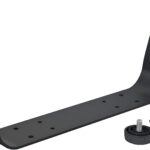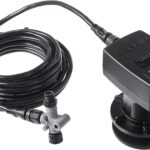You’re about to embark on a journey through the intriguing techniques of silent fishing in the thought-provoking read, “Fishing Quietly to Avoid Spooking Your Catch”. Enhancing your fishing game, this piece offers valuable insights on the critical skill of fishing quietly. The article presents a detailed guide on how to maintain stealth while fishing, thereby significantly improving the chances of reeling in a sizable catch without causing any disturbance to the aquatic life. Enjoy this unique ride into the world of fish and find out how you can make your next fishing trip more fruitful.
Understanding Fish Behavior
Successful fishing requires a comprehensive understanding of fish behavior, specifically their response to danger. Learning about this can significantly increase your likelihood of catching fish.
How fish perceive danger
Fish perceive danger through their extremely well-developed senses. Their lateral line sensory organ enables them to detect movements in the water around them. This system helps them detect potential danger, including approaching predators and yes, even you-the angler. When they perceive danger, their natural instinct is to swim away from that threat. Understanding this behavior can undoubtedly assist you adjust your fishing techniques.
Factors that scare fish
Several factors might scare fish. Rapid motions, loud noises, and sudden changes in light levels can all induce panic in fish. The disturbance at the water surface can also startle them. Equipment like fishing motors and anglers wading through the water can scare them off. It’s crucial to consider these factors as you plan your fishing approach.
Signs that your catch is spooked
Fish display various signs when they are scared. They might dart away rapidly or exhibit erratic swimming patterns. They may also hide under structures or burrow into the substrate. Paying attention to such signs can help you improve your fishing strategy and prevent potential scares.
Ideal Fishing Conditions
Just like other animals, fish behavior changes throughout the day and under different weather conditions, which impacts their aggressiveness.
Time of day and fish behavior
Fish behavior can markedly differ depending on the time of day. During the day, fish are likely to seek cover to hide from predators. However, at dawn and dusk, they may venture out to feed. So, these periods might provide the best fishing opportunities.
Weather conditions and fish activity
Fish activity tends to increase during overcast weather as they feel safer from predators. However, colder weather can reduce their activity levels as they try to conserve energy. Therefore, understanding the impact of these weather conditions is crucial when planning your fishing excursion.
Seasonal changes affecting fish aggressiveness
Fish are cold-blooded creatures, meaning their internal body temperature depends on the surrounding environment. Thus, seasonal changes significantly impact their behavior and level of aggressiveness. During warm months, fish are usually more active and might bite more. On the other hand, they might become slower in colder conditions.
Use of Noise Reducing Gear
Quiet is essential in fishing. Thus, using noise-reducing gear can enhance your success in fishing. Here are some noise-reducing gear and tools you might consider using on your fishing trips:
Silent fishing rods
Silent fishing rods can be effective in quiet fishing. These rods are designed to minimize sound, making it less likely to scare your potential catch.
Choosing quiet bait
Similarly, quiet baits add to the effect of silent fishing. Many artificial baits make loud, clattering noises to attract fish. However, if fish are being skittish, it might be beneficial to use silent baits that create fewer disturbances underwater.
Sound-proof fishing gear
Soundproof fishing gear like noise-reducing boots can be helpful. They can help reduce noise caused by walking or moving, thus helping you stay unnoticed by the fish.
Moving Slowly and Deliberately
Graceful and deliberate movement can greatly improve your fishing experience. Sharp and rapid movements can startle fish and send them darting off to safety.
Importance of slow movement in the water
Moving slowly in the water can significantly reduce your chances of scaring off fish. It enables you to sneak up on them, making your task of catching them a lot easier.
Proper techniques in casting
Casting techniques also play a role in how much noise and water disturbances you create. Overhand casting can create a big splash, which might scare away fish. Consider adopting quieter techniques such as side casting or flip casting which create less surface disturbance.
Safe repositioning if fish aren’t biting
At times, it may be necessary to move to a new position if the fish aren’t biting. Ensure your movement is slow, measured, and quiet to reduce your chance of spooking the fish.
Quietly Approaching Fishing Spot
Your approach to your fishing spot can make or break your fishing experience.
Using a stealthy approach
Many anglers underestimate the importance of a stealthy approach. Walking softly, avoiding shadows on the water, and watching your rod’s tip can all help you approach your fishing spot sans scaring off the fish.
Selecting quiet water entry points
Choosing a quiet water entry point, like a slow-moving stream or a smooth rock, can help you access the water with minimum disturbance. Smooth entry can often mean the difference between a successful and a failed fishing session.
Noise reduction techniques when boating
If you are fishing from a boat, ensure that you operate it gently to minimize sound. Avoid dragging your gear on the boat floor or knocking your paddle against the boat as these noises can easily travel through water.
Communication and Noise Level
While communication is key in any group activity, taking care of the noise level during fishing is crucial. This includes the types of noises to be avoided and sound etiquette when fishing in groups.
Quiet communication while fishing
If you’re fishing with others, keep conversation levels to a minimum. Remember, even whispers can scare fish away if they are close enough to the surface.
Types of noise to avoid
Avoid noises that can potentially scare fish such as thumping around in the boat, loud casting, dropping gear, or even loud conversations. All these are easily audible to fish and can send them swimming in the opposite direction.
Sound etiquette when fishing in groups
If you’re fishing in a group, ensure everyone understands the importance of being quiet. Discuss and agree upon some noise guidelines before your fishing adventure begins.
Proper Handling of Caught Fish
If you’re catch-and-release fishing, proper handling of caught fish is crucial for their survival and to avoid scaring away other fishes.
Noise-free fish handling techniques
It’s essential to handle the fish as gently and quietly as possible while unhooking them. Use of noise-free tools like rubber nets, plastic pliers, and a gentle set of hands can ensure a quiet release.
Reducing fish stress when removing from water
The less time the fish spends out of water, the less stress it experiences. Therefore, minimize the time you handle the fish and avoid throwing or dropping it back into the water.
Release techniques to avoid scaring other fish
Decent release techniques involve placing the fish back in the water gently to minimize splash. This ensures the other fish in the vicinity aren’t scared off.
Use of Silent Bait
The type of bait and the method in which it’s used can impact your fishing success.
Choosing the right bait
Choosing less noisy bait like soft plastics or live bait can make a lot of difference in quiet fishing. Such baits tend to create less disturbance in the water, thus alerting fewer fish to your presence.
Silently switching bait
If you wish to change your bait, ensure you do it as silently as possible to avoid startling any nearby fish. Manoeuvre it carefully in and out of your tackle box, ensuring it doesn’t create noise.
Ideal bait handling techniques
Effective bait handling involves learning how to cast and retrieve silently. Focus on creating the least amount of splash when your bait hits the water and when it’s being retrieved.
Selective Casting
Selective casting can prove to be a wise strategy in quiet fishing as it minimises water noise and spooking fish.
Precision in casting
Being precise about where you cast your line can help you reduce unnecessary water disturbance. You’ll want to target an area where fish are likely to be present, rather than casting randomly.
Techniques to minimize water noise
Opt for casting techniques that creature minimal splashing and disturbance. One such technique is to cast with a high arc, allowing your bait or lure to enter the water more gently.
Proper reeling techniques
Reeling in slowly and smoothly can reduce the noise generated by the water, increasing your chances of a successful catch.
Periods of Silence
Strategically timing periods of silence can give fish a chance to settle down and possibly return to their feeding areas.
Scheduling breaks for fish to recover
Taking a short break can often be beneficial. Allow the fish to relax and return to their natural behavior by providing some quiet time.
Listening for fish activity
Fish often make noticeable sounds when they are feeding. Listen carefully for splashes, jumps, or tail slaps during your quiet time, as these could alert you to their presence.
Monitoring fish movement in quiet periods
Keep an eye on the water during these silent periods. Watch for any visible signs of fish, such as jumping or finning at the water’s surface. This could spearhead your next cast spot.
Maintaining silence and reducing noise can be a game-changer in your fishing expeditions. Bear in mind these tips when you’re out fishing next time!










